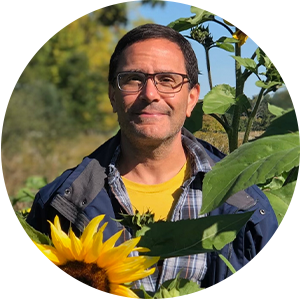Just before fall 2003, when I started as an assistant professor of English at Central Michigan University, my department resurrected a long-defunct MA program. Support from the state made it possible for Michigan’s secondary ed instructors to pursue advanced degrees as professional development, meaning we had an interested student body that could afford to attend a graduate program.
We also assumed students from CMU and elsewhere, mostly Michigan and surrounding states, wanted to pursue an advanced degree in English and could afford to do so with the help of graduate assistantships. There was also a small but consistent number of self-funded students wanting the MA simply because they were interested, such as creative writing students wanting more years to write. For the next 15 years or so, despite some challenges, we kept that MA degree running.
Does a Program Wither When the Funds Run Dry?
Predictably, soon after we’d resurrected this MA program, funding stopped. Did this mean the end of our MA program?
No, CMU continued to have many undergraduates needing composition instruction from our MA graduate assistants, and our self-funded students remained. But, about a half-dozen years ago, the situation shifted when the long-predicted decrease in the younger population in Michigan hit hard.
Our undergraduate student population ultimately decreased by about half. We went from approximately 25,000 students to 12,000. We no longer had the need or the budget for graduate assistants (GAs) throughout the College of Liberal Arts and Social Sciences. Once those were gone, it was only a short time until our dean announced that the English MA would be discontinued — sort of, more on that in a second.
Hope and Graduate Programs Spring Eternal
Shortly before the MA program as we knew it was declared done, the department had set into motion a long-discussed accelerated MA program. In theory, it would build our graduate population, sustaining a healthy MA program with more students paying their own way.
Of course, there were many concerns.
- Would an accelerated MA program, one that allowed students to finish a BA and an MA in five years, be rigorous enough and cover enough content?
- Would the accelerated program draw students away from the traditional, two-year MA, undermining that population?
- Would we be able to manage two somewhat different populations?
We were also intimidated by the logistics of an accelerated MA, and most of us in the department couldn’t wrap our heads around just how courses would be counted, sequenced or scheduled. Why, practically speaking, would a student pay for a one-year MA when they could aspire to a two-year MA funded by a GA that included a tuition award and a teaching stipend?
The lack of obvious answers to these concerns was discouraging and conversation-ending. At a certain point, however, it seemed as if the advantages of an accelerated MA would outweigh potential disadvantages and challenges — and that one way to resolve confusing questions would be to confront them.
We had a graduate director in favor of the program. We also, importantly, had a chair who was willing not only to make change but insistent enough to make change happen; she also had the support of our dean’s office. We plowed ahead, and our accelerated program became available to students in the 2018-2019 school year.
How to Reach the Students?
The accelerated MA grew and continues to grow. The English faculty presented it to juniors by explaining that they could proceed as normal with their English majors. However, instead of taking the senior classes they’d already scheduled, they could swap in undergraduate/graduate and graduate classes.
We then explained that, as part of the accelerated MA program, five of those classes would count toward their undergraduate major and count as the classes for their first year of graduate school — at the undergraduate tuition rate. After senior year and graduation with a BA or BS, they would take five more classes to finish their MA in English.
Some students might even get a one-year GA after the BA, making the arrangement very cost-effective. Those who didn’t get a GA would still earn a graduate degree more quickly and cheaply than otherwise possible.
The Results Speak for Themselves
Students started signing up, slowly but surely. Currently, we have 20 MA students; 11 are in the accelerated program.
In general, our more focused MA in Creative Writing has answered many of the questions we had about the accelerated curriculum. Our courses for all graduate students are concentrated and sequenced.
The accelerated MA has tended to draw our strongest, most ambitious, most successful undergraduates. Our accelerated students tend to be those drawn to the challenges and possibilities of the program and who feel best able to manage what might seem daunting to many undergraduates in their third year — becoming graduate students.
Of our current 11 accelerated students, half were CMU Honors students. All these students — at the risk of sounding self-congratulatory — have the benefit of the intensive, focused, sequenced training that CMU’s creative writing program offers. They are prepared, in other words, to do graduate work in our MA program.
Community Fosters Growth
There’s more than can be said, too, for the strength of community that has emerged since the start of our accelerated MA program. The creative writing community at CMU, as at many other institutions, has always been strong. It is now, to my eye, even stronger.
Students work closely together and for longer in sequenced classes. Students take it upon themselves to organize extracurricular writing groups that have a continuity of membership. We have a literary journal run year after year by volunteer creative writing students — a journal that can pursue longer-term visions. We now have just one literary journal, instead of splitting our efforts between an undergraduate journal and a graduate journal.
Students come faithfully, as a cohort, to the readings by faculty and those organized by faculty. We also have more student readings, because the writers in our accelerated program want to and know how to put them on. This community strength is inclusive, too, and involves all our creative writers, undergraduates and accelerated students, as well as traditional graduate students.
Benefits to the Students
An additional and enormous benefit of the accelerated MA, to my mind, is that students in the program can be introduced to graduate work at a reasonable pace. In that transitional year, when their courses count as both their final undergraduate classes and their initial graduate classes, expectations can be slowly built. Accelerated students might be asked, for example, to write more in a workshop, read more, offer more or fuller feedback to their peers or present on a given topic — whatever the faculty member running the workshop sees as suitable and constructive.
The students, however, are in a familiar and comfortable environment as they reach a bit further, preparing for the even fuller requirements of a 600-level graduate workshop or seminar. Too often for traditional MA students, the transition into an MA experience is very jarring; in that, they are suddenly expected to be a part of the profession, with all its expectations, and (especially if also teaching for the first time) their professors’ peers, in a way. Not so with the accelerated MA.
Also, because they are not eligible for any sort of assistantship while still in their senior year of undergraduate/first year of graduate classes, our accelerated students do not have to juggle newly challenging academic work with the intense demands of learning to teach. Many of us might remember the almost overwhelming burden of sitting one moment in the seminar room and standing, the next, in front of one, maybe two sections of freshmen. Our accelerated students don’t face this situation.
As our accelerated students are unfunded when starting the program, we avoid the divisive hierarchy established between graduate students who teach and those not awarded a GA; our accelerated students are all on equal ground.
Finally, those few exceptional students we can offer GAs in their second year will work in the CMU Writing Center. Arguably, and for the better, the responsibilities that come with tutoring in the Writing Center are fewer than those that come with teaching sections of freshman composition. In addition, the individuals who tend to receive those GAs are exceptional students who’ve already worked in the WC as undergraduates, making the assistantship not only an academic award but also an award for previous strong tutoring work.
A Successful Program
The accelerated MA also allows us a clearer sense, overall, of the purpose of our graduate program. In short, we feel the program serves two purposes.
First, it helps our undergraduates build more knowledge of and experience with literature, language, and writing that comes with an English degree. It lets them be immersed in English studies longer and, we hope, prepares them better for what they might do with an English degree, be it as a writer, editor, web content specialist, paralegal, and so on. It gives them that leg up, ideally, as they head into the world to find work and make use of their knowledge and skills.
Our program can also serve as an effective bridge between our students’ time here at CMU and further study, be it in an MFA or PhD program in English or further study in public policy, game design or law school. Again, their fuller work in English studies makes them better prepared to succeed in whatever next program or pursuit they choose.
Practically speaking, it increases their chances of being admitted to those programs, not least because the capstone of our MA, accelerated or otherwise, is a 30-page portfolio of their strongest writing, reflected on in an introduction, and those portfolios make for strong application materials.
But aren’t those goals of any MA program? Yes, perhaps, but here, they are the clear and primary goals. When we offered only the traditional, two-year MA, many students — and administrators — expected it to be something of a terminal degree (no matter how often we explained it couldn’t be). It was expected to be, in other words, a program that somehow taught students the regular, full curriculum and trained them to work in the specific areas English majors and MAs find jobs: publishing and editing, for example.
Although much of what we teach will provide them with the skills necessary to succeed in those industries, we couldn’t and can’t provide professional training. Nor were we or are we equipped to provide all the job training an MA student might need to land and keep a tenure-track job teaching in a community college, which some students expected. (It’s worth noting that some of the graduates have found teaching jobs.)
We are now able to offer an “occasional” course in the pedagogy of creative writing, and we are also offering an ongoing publishing class in which students will assist with the Summit Series, a literary branch of CMICH Press — but those are bonuses. We haven’t been and can’t be a program in editing and publishing or pedagogy.
Benefits for the University
Finally, a very quantifiable bonus of the accelerated MA degree, one that cheers our administration to no end, is that it is an uncomplicated revenue generator.
Arguably, having traditional MA students who teach freshman comp can also make significant money for the university, but the particulars of that arrangement can be convoluted. GAs are given “free” tuition, a salary and benefits; they (should) teach smaller classes; and they must be supervised by a faculty member who will need a course release.
None of those factors comes into play with the majority of accelerated students, who the university retains for an additional year beyond the undergraduate at a higher graduate tuition rate. It’s likely a good number of those students wouldn’t have stayed at CMU for this extra time without the accelerated MA program. It’s certain that the university, which is now more than ever tuition-driven, benefits.
We’re now only five years into this experiment, but all signs point towards present and continued success. Students, faculty, and administration are, by all reports, more than satisfied with the advantages of our accelerated MA, and enrollment remains strong.
What, though, we wonder, are the situations of other accelerated MA programs in English around the country? What have been the experiences of their students, faculty and departments? What, additionally, are the thoughts of those readers who might remain leery of accelerated programs, even when taking into account the benefits listed here? An ongoing discussion would be most welcome.







